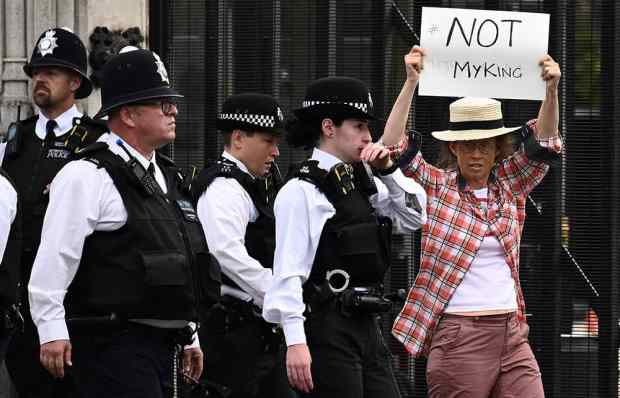Students eager to pull down statues and silence debate on topics of which they disapprove — and vice-chancellors who pusillanimously cave into them — would do well to consider the history of such censorship. The Roman historian Cremutius Cordus was on the sharp end of what can happen.
In 44 bc, Brutus and Cassius led the conspiracy to kill Julius Caesar. In the ensuing civil war, Caesar’s heir Octavian took his revenge on the conspirators, and eventually emerged as the first Roman emperor, Augustus (27 bc–14 ad). Clearly, Augustus would not have regarded Brutus and Cassius with much favour; nor did his successor, and stepson Tiberius.
In 25 ad, two of Tiberius’s cronies found that, in his history, Cordus had ‘praised Brutus and said that Cassius was the last of the Romans’. This looked like an insult directed at Augustus, and so at Tiberius, as if they were not proper, patriotic Romans. So Cordus faced a ‘novel charge’ of treason.
Since Tiberius himself turned up at the trial, looking particularly grim-faced, ‘Cordus realised that his days were numbered’. So he did not hold back. He gave examples of past great men like Caesar and Augustus who showed true statesmanship in tolerating criticism. Brutus and Cassius died 70 years ago; their statues were still standing. Surely he (Cordus) was not inciting civil war against Tiberius? Greeks spoke freely, and those who took offence avenged words with words — not threats of punishment. Posterity gave every man its due: ‘If you condemn me, people will remember me as they do Brutus and Cassius.’ Cordus then walked out and starved himself to death.
This event was reported by the historian Tacitus. He pointed out that Cordus’s books were burned, but they ‘survived underground and were republished’. Tacitus concluded: ‘It is gratifying to mock the mental inertia of those who believe that future ages can be deprived of their past by today’s Big Brothers. On the contrary, action against writers merely enhances their standing. Foreign kings and barbarians who similarly attempt to suppress history simply bring glory on historians and disgrace upon themselves.’
For ‘Big Brothers’ read ‘students’ and for ‘barbarians’ read vice-chancellors.
Got something to add? Join the discussion and comment below.
Get 10 issues for just $10
Subscribe to The Spectator Australia today for the next 10 magazine issues, plus full online access, for just $10.
You might disagree with half of it, but you’ll enjoy reading all of it. Try your first month for free, then just $2 a week for the remainder of your first year.













Comments
Don't miss out
Join the conversation with other Spectator Australia readers. Subscribe to leave a comment.
SUBSCRIBEAlready a subscriber? Log in